Can Dogs Eat Human Food? A Vet's Guide to Safe Sharing vs. Dangerous Scraps
- 15 Apr 2025 10:54
It's a familiar scene in many households: you're enjoying a meal, and those loving, pleading eyes are fixed on your every bite. The temptation to share a piece of your dinner or snack with your furry best friend can be strong. After all, sharing is caring, right? This leads to one of the most common questions pet parents ask: can dogs eat human food? The answer isn't a simple yes or no. While some human foods are perfectly safe, even beneficial, for dogs *when prepared correctly and given in strict moderation*, many others range from unhealthy to downright dangerous or even lethal. Understanding the difference is crucial for your dog's health and safety.
This comprehensive guide, grounded in veterinary nutritional principles and adhering to E-E-A-T (Expertise, Authoritativeness, Trustworthiness) standards, will navigate the complex world of sharing human food with dogs. We'll explore why dogs have different needs, identify safe options, highlight critically dangerous foods, discuss hidden risks in prepared meals, and provide guidelines for safe sharing, helping you make informed decisions for your beloved companion.
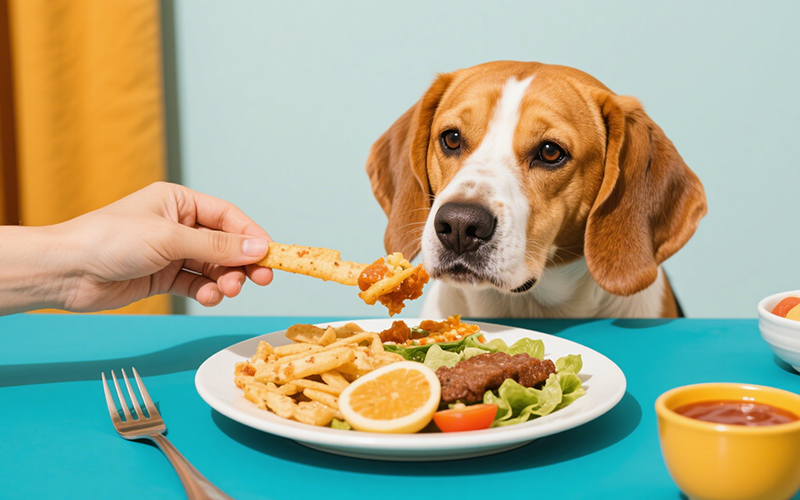
The Appeal of Sharing: Why We Want to Give Human Food to Dogs
Several factors drive our desire to share our meals with our dogs:
Bonding:** Sharing food is a social activity, and offering tidbits can feel like strengthening the bond with our pet.
"Healthy" Options:** We might think sharing nutritious foods like fruits or vegetables is good for them.
Appealing to Picky Eaters:** Sometimes, adding human food seems like the only way to get a fussy dog to eat.
Reducing Waste:** Giving leftovers seems practical.
Those Puppy Eyes:** Let's be honest, they're hard to resist!
While these intentions are often good, they must be balanced with a thorough understanding of canine dietary needs and the potential dangers lurking in our food.
The Fundamental Problem: Why Human Diets Don't Equal Dog Diets
Dogs and humans have evolved different digestive systems and nutritional requirements. What's perfectly healthy for us can cause problems for them due to several key differences:
Different Nutritional Needs: Dogs require specific ratios of protein, fat, carbohydrates, vitamins, and minerals formulated for their species, age, and activity level. Human diets often don't meet these specific canine needs. High-quality commercial dog foods are designed to be complete and balanced.
Sensitivities:** Dogs can be sensitive or allergic to ingredients common in human food (e.g., wheat, dairy, soy).
Digestive Differences:** Dogs may struggle to digest very high-fat or heavily processed human foods, leading to gastrointestinal upset or pancreatitis.
Toxicity Issues: Many common human foods contain substances that are harmless to us but toxic to dogs (e.g., xylitol, theobromine, components in onions/garlic).
Processing & Additives: Human foods are often high in salt, sugar, unhealthy fats, artificial sweeteners, preservatives, and seasonings that are detrimental to a dog's health.
Therefore, assuming dogs can eat human food without careful consideration is risky.
Human Foods Generally Considered Safe for Dogs (With Strict Caveats!)
Some human foods *can* be safe and even healthy for dogs, but **ONLY** under these conditions:
They are served **PLAIN** (no salt, butter, oil, seasonings, sauces, garlic, onion).
They are given in **STRICT MODERATION** (following the 10% treat rule – treats shouldn't exceed 10% of daily calories).
They are prepared safely (e.g., cooked thoroughly where needed, bones/pits/seeds removed).
Your individual dog tolerates them well (introduce slowly).
Examples of potentially safe human foods include:
Lean Cooked Meats: Plain, cooked chicken, turkey, lean beef, or fish (like salmon or cod) with **ALL bones and skin removed**. Must be unseasoned. Provides high-quality protein.
Certain Cooked Eggs: Plain scrambled or hard-boiled eggs are a great source of protein and vitamins. Avoid raw eggs due to Salmonella/biotin risks.
Some Vegetables:
Carrots:** Raw or cooked, good source of Vitamin A, crunchy.
Green Beans:** Plain, raw or cooked. Low calorie, high fiber.
Plain Pumpkin Puree:** 100% pumpkin (NOT pie filling). Excellent for digestion.
Cooked Sweet Potatoes:** Plain, peeled, cooked. High fiber/vitamins (feed moderately due to starch).
Cucumber:** Hydrating, low calorie.
Broccoli/Cauliflower:** Plain cooked, chopped small, in *very small* amounts (can cause gas/GI upset).
Some Fruits (Pits/Seeds/Core Removed):
Apple Slices:** Remove core and seeds.
Blueberries:** Antioxidant-rich, small size.
Watermelon:** Seedless/deseeded, remove rind. Hydrating.
Banana Slices:** Potassium, vitamins. High sugar, feed sparingly.
Strawberries:** Vitamin C, fiber.
Plain Cooked Rice/Pasta: White or brown rice, plain cooked pasta in small amounts can be okay for adding carbohydrates, sometimes used in bland diets (under vet guidance).
Plain Yogurt/Kefir (Limited Dairy):** Plain, unsweetened yogurt with live cultures *can* be okay in small amounts for some dogs (probiotics). However, many dogs are lactose intolerant. Avoid sweetened or flavored yogurts (check for XYLITOL).
Even these "safe" foods must be treated as occasional additions, not dietary staples, when considering if dogs can eat human food safely.
The DANGER ZONE: Human Foods TOXIC or Harmful to Dogs
This is the most critical list. These foods should **NEVER** be given to dogs, as they can cause severe illness or death:
Chocolate: Contains theobromine and caffeine (methylxanthines). Toxic effects include vomiting, diarrhea, rapid heart rate, tremors, seizures, heart arrhythmias, and death. Darker chocolate is more dangerous.
Xylitol: An artificial sweetener found in sugar-free gum, candy, peanut butter, baked goods, some medications, and even some processed foods. Causes a rapid, life-threatening drop in blood sugar (hypoglycemia) and acute liver failure. **EXTREMELY DANGEROUS.**
Onions, Garlic, Chives, Leeks (Allium Family): Contain thiosulfates that damage red blood cells, causing potentially fatal hemolytic anemia. All forms (raw, cooked, powdered) are toxic.
Grapes and Raisins: Can cause sudden, acute kidney failure in dogs. The exact toxin is unknown, and sensitivity varies, but ingestion requires immediate veterinary attention.
Alcohol: Highly toxic to dogs, affecting the central nervous system and respiratory system. Can cause vomiting, diarrhea, incoordination, difficulty breathing, tremors, coma, and death.
Macadamia Nuts: Contain an unknown toxin that causes neurological signs like weakness (especially in hind legs), tremors, vomiting, lethargy, and hyperthermia.
Cooked Bones: Become brittle and easily splinter, causing choking, internal perforations (mouth, throat, stomach, intestines - potentially fatal), obstructions, constipation, and dental damage. **NEVER feed cooked bones of any kind.**
Avocado: Contains persin, which can cause vomiting and diarrhea in dogs. The pit is also a choking/obstruction hazard.
Caffeine: Found in coffee, tea, soda, energy drinks, and some medications. Causes similar effects to chocolate toxicity (restlessness, rapid breathing, heart palpitations, tremors, seizures).
Yeast Dough (Unbaked): Raw yeast dough rises in the warm, moist environment of the stomach, causing severe bloating (potentially leading to GDV/stomach torsion) and producing ethanol (alcohol poisoning).
This list of unsafe human food for dogs is not exhaustive but covers the most common and dangerous items.
Hidden Dangers: Processed Foods, Seasonings & Fats
Beyond inherently toxic ingredients, many prepared human foods pose risks:
High Sodium Foods: Processed meats (hot dogs, bacon, deli meat, corned beef), canned soups/vegetables, chips, pretzels, many sauces. Risk of dehydration, hypertension, sodium poisoning.
High Fat Foods: Fried foods, fatty meat scraps (steak fat, pork chop fat), gravy, creamy sauces, cheese. Major risk factor for **pancreatitis**, plus obesity and GI upset.
Sugary Foods: Candy, cookies, cakes, ice cream, sweetened yogurts, soda. Lead to obesity, dental problems, diabetes risk. Watch out for hidden xylitol in sugar-free versions!
Dairy Products: Many dogs are lactose intolerant, leading to gas, bloating, and diarrhea from milk, cheese, ice cream.
Seasonings & Sauces: Often contain high salt, sugar, fats, and potentially toxic onion/garlic powder.
Giving dogs table scraps or leftovers often means giving them unsafe levels of fat, salt, sugar, and potentially toxic seasonings mixed in.
The Importance of Moderation (The 10% Rule)
Even for human foods deemed safe, moderation is crucial. A common guideline recommended by veterinarians is the **10% rule**: all treats combined (whether commercial dog treats or safe human food tidbits) should make up no more than 10% of your dog's total daily caloric intake. The other 90% or more should come from their complete and balanced dog food.
Exceeding this can:
Unbalance their diet, leading to nutritional deficiencies or excesses.
Contribute excess calories, causing weight gain.
Increase the risk of digestive upset.
Table: Safe vs. Unsafe Human Food Summary
| Category | Generally SAFE (Plain & Moderate) | DANGEROUS / TOXIC (AVOID!) |
| Meats | Cooked Lean Chicken/Turkey/Beef/Fish (Boneless, Skinless, Unseasoned) | Fatty Trimmings, Cooked Bones, Processed Meats (Hot Dogs, Bacon, Deli Meat, Corned Beef), Seasoned Meats. |
| Vegetables | Carrots, Green Beans, Pumpkin Puree, Cooked Sweet Potato, Cucumber, Broccoli (tiny amounts). | Onions, Garlic, Chives, Leeks, Corn on the Cob (cob = obstruction risk), Avocado, Heavily Seasoned/Buttered Veggies. |
| Fruits | Apples (no core/seeds), Blueberries, Watermelon (no seeds/rind), Bananas (sparingly), Strawberries. | Grapes, Raisins, Cherries (pits/stems toxic), Avocado, Citrus (can cause upset). |
| Dairy | Plain Yogurt (tiny amount, if tolerated). | Milk, Cheese, Ice Cream (Lactose Intolerance, High Fat/Sugar). Flavored yogurts (sugar/xylitol risk). |
| Grains | Plain Cooked Rice/Pasta (small amounts). | Bread (refined flour, low nutrition), Sugary Cereals, Raw Yeast Dough. |
| Other | Plain Cooked Eggs. | Chocolate, Xylitol, Caffeine, Alcohol, Macadamia Nuts, Salty Snacks, Sugary Snacks, Fried Foods. |
What to Do If Your Dog Eats Unsafe Human Food
Accidents happen. If your dog consumes something potentially harmful:
Identify the Food and Amount:** Try to determine exactly what and how much was eaten. Check ingredients if possible (especially for xylitol, chocolate, onion/garlic).
Remove Access:** Prevent further ingestion.
Assess Your Dog:** Are they showing immediate signs of distress (choking, difficulty breathing, severe vomiting, collapse)? If so, seek immediate emergency veterinary care.
**Contact Your Veterinarian or Pet Poison Helpline IMMEDIATELY:** Do this even if your dog seems okay, especially if a known toxin (chocolate, xylitol, grapes, onion/garlic, cooked bones, macadamia nuts) was ingested. Time is critical for treatment.
Provide Details:** Be ready with information on what was eaten, when, quantity, your dog's weight/breed/age/health status, and current symptoms.
Follow Professional Advice:** Do NOT induce vomiting unless specifically instructed by a vet. Follow their recommendations for monitoring, treatment, or examination.
Knowing what to do if dog eats human food that's unsafe involves quick assessment and prompt professional contact.
Need Quick Pet Food Safety Info? PettureX Can Help!
Navigating the complexities of human food safety for pets can be challenging. The PettureX App offers innovative AI-powered tools designed to provide quick support and information for pet parents:
Food & Plant Identification: Use your smartphone camera to quickly identify common human foods or household plants and get general pet safety information.
AI Symptom Analysis: If your pet eats something questionable and develops symptoms, input the details for preliminary AI insights to help guide your conversation with your veterinarian.
24/7 AI Vet Consultation: Get immediate answers to urgent questions like, "Is this ingredient safe for dogs?" or seek guidance on managing potential ingestion incidents anytime.
PettureX provides valuable, instant support. Remember, however, that it offers preliminary guidance and **cannot replace a professional veterinary diagnosis, treatment plan, or emergency care.** Always consult your local veterinarian for definitive medical advice and critical situations.
Conclusion: Prioritize Safety When Sharing Food with Dogs
So, can dogs eat human food? The answer is yes, *some* plain, properly prepared human foods *can* be safe in strict moderation. However, the list of dangerous and toxic human foods is long and includes many common ingredients and preparations.
Key Takeaways:
Dogs have different nutritional needs and sensitivities than humans.
Many human foods are **toxic** (chocolate, xylitol, onions, garlic, grapes, raisins) or **dangerous** (cooked bones, high fat/salt/sugar items).
Safe sharing requires **plain preparation** (no seasonings, fats, sauces) and **strict moderation** (max 10% of daily calories).
Prioritize a **complete and balanced commercial dog food** as the foundation of their diet.
When in doubt about a specific food, **err on the side of caution** and don't feed it.
Accidental ingestion of harmful foods requires **prompt veterinary consultation.**
The safest approach is often to stick to high-quality dog food and treats specifically formulated for canine needs. While sharing carefully selected, plain human foods occasionally might be okay, always prioritize your dog's health and safety above the momentary temptation to share your plate.
Related
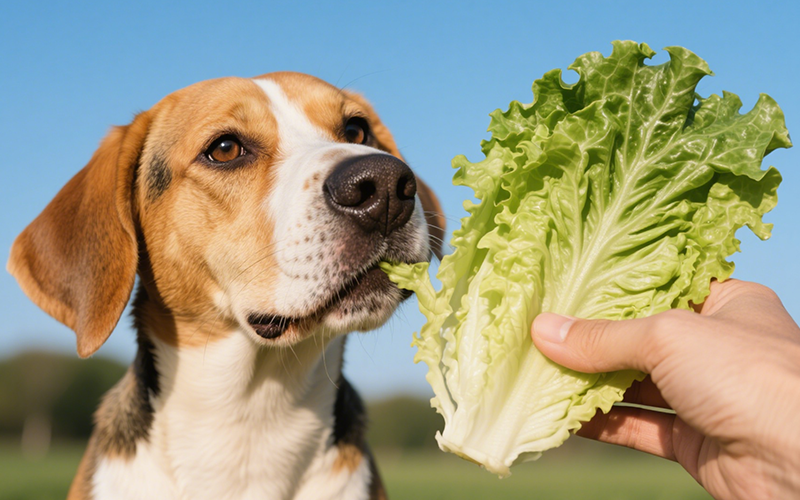
Crunchy Greens for Canines: Can Dogs Eat Romaine Lettuce Safely?
- 25 Apr 2025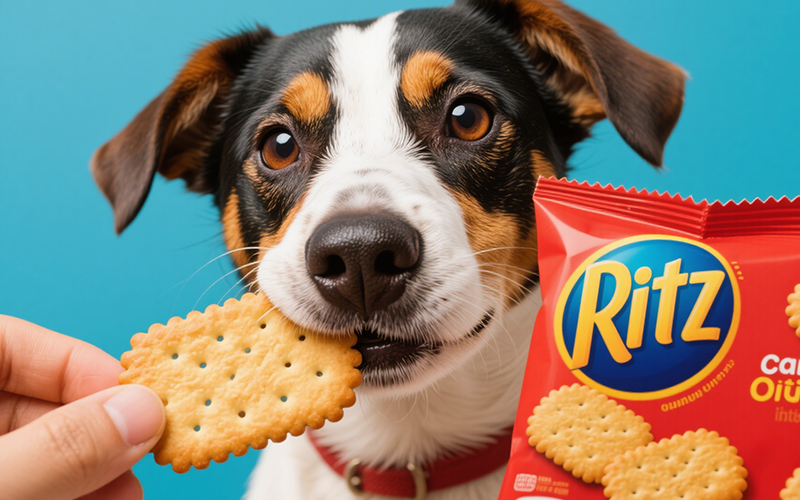
Ritz Crackers for Dogs? Why Vets Say No to This Common Snack
- 25 Apr 2025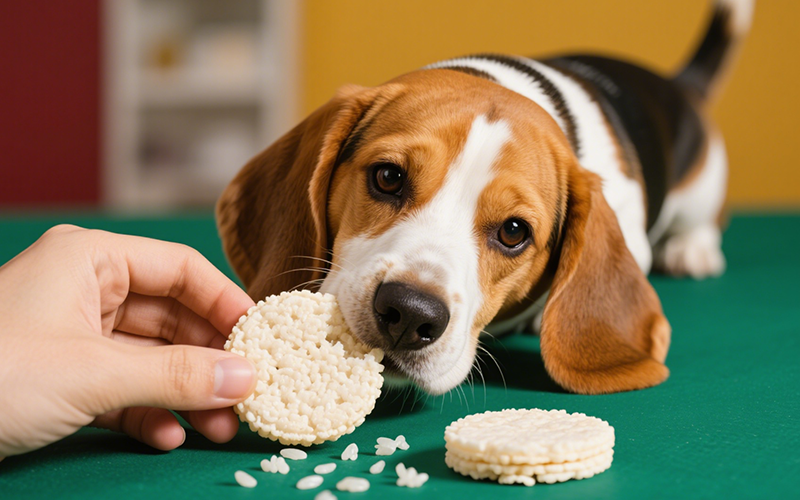
Rice Cakes for Rover? A Crunchy Question: Can Dogs Eat Rice Cakes Safely?
- 24 Apr 2025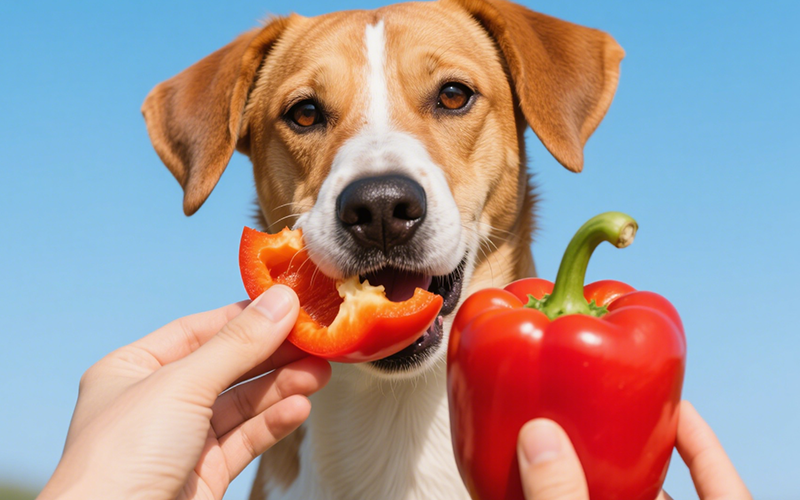
Crunchy & Colorful: Can Dogs Eat Red Bell Peppers Safely? A Vet-Approved Guide
- 24 Apr 2025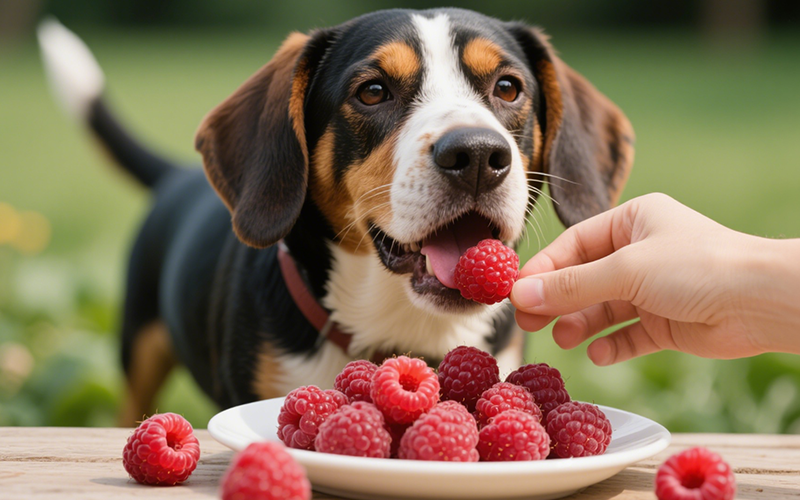
Raspberries for Rover? A Vet's Guide to This Berry Good Treat for Dogs
- 23 Apr 2025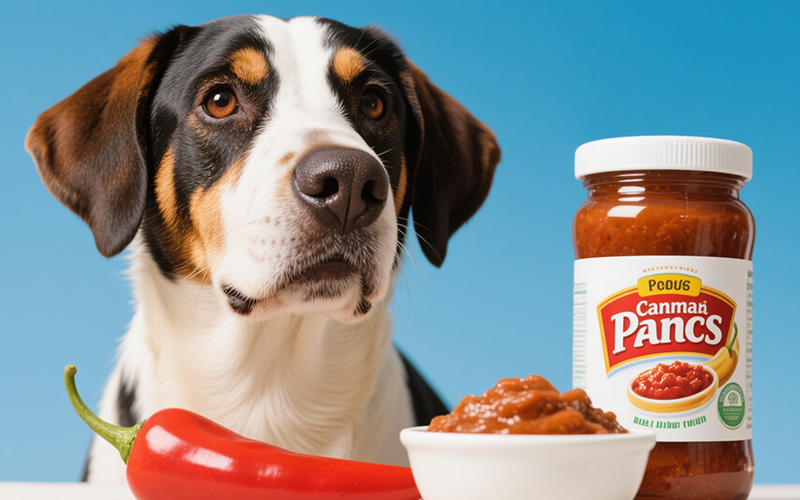
Ranch Dressing Dilemma: Can Dogs Safely Indulge? A Deep Dive into Why It's a Bad Idea
- 23 Apr 2025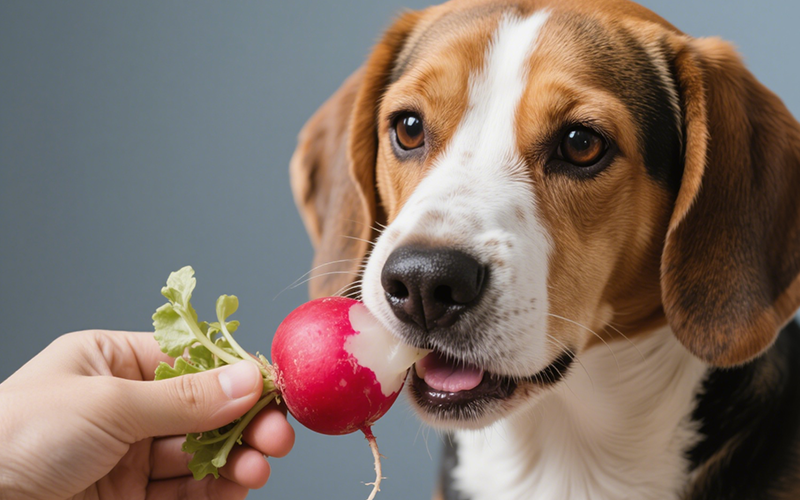
Radish Bites for Your Buddy? A Vet-Reviewed Guide on Whether Dogs Can Eat Radishes
- 22 Apr 2025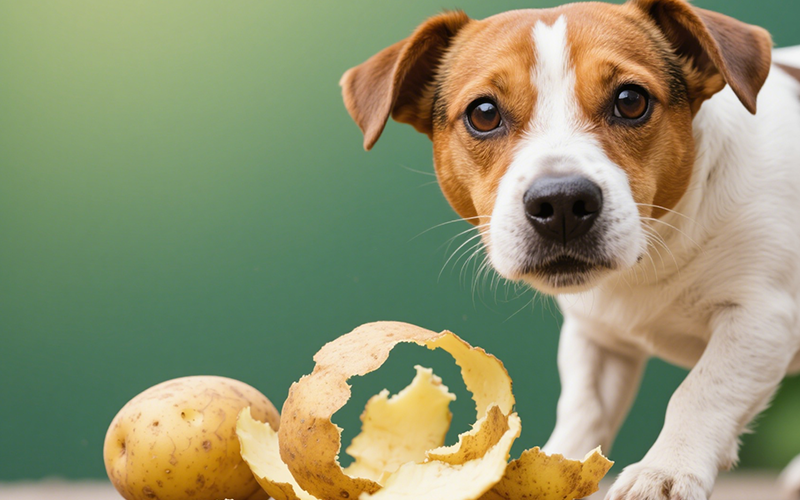
Potato Peels for Pooches? Unpeeling the Risks and Facts for Dog Owners
- 22 Apr 2025
Crunchy Curiosity: Can Dogs Safely Snack on Pork Rinds? A Deep Dive
- 21 Apr 2025
Pomegranate Seeds and Pooches: A Deep Dive into Whether Dogs Can Safely Indulge
- 21 Apr 2025
